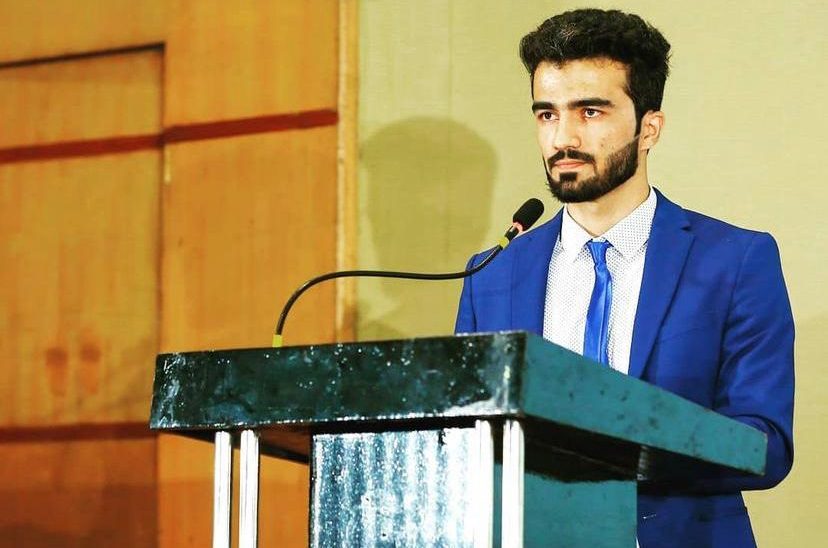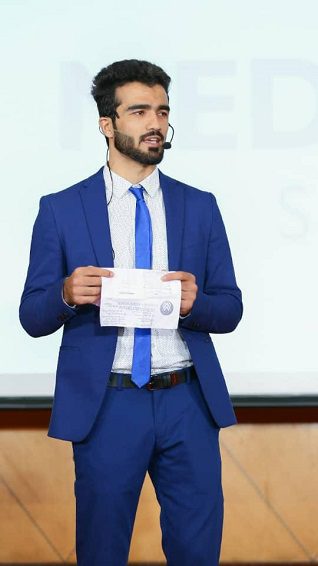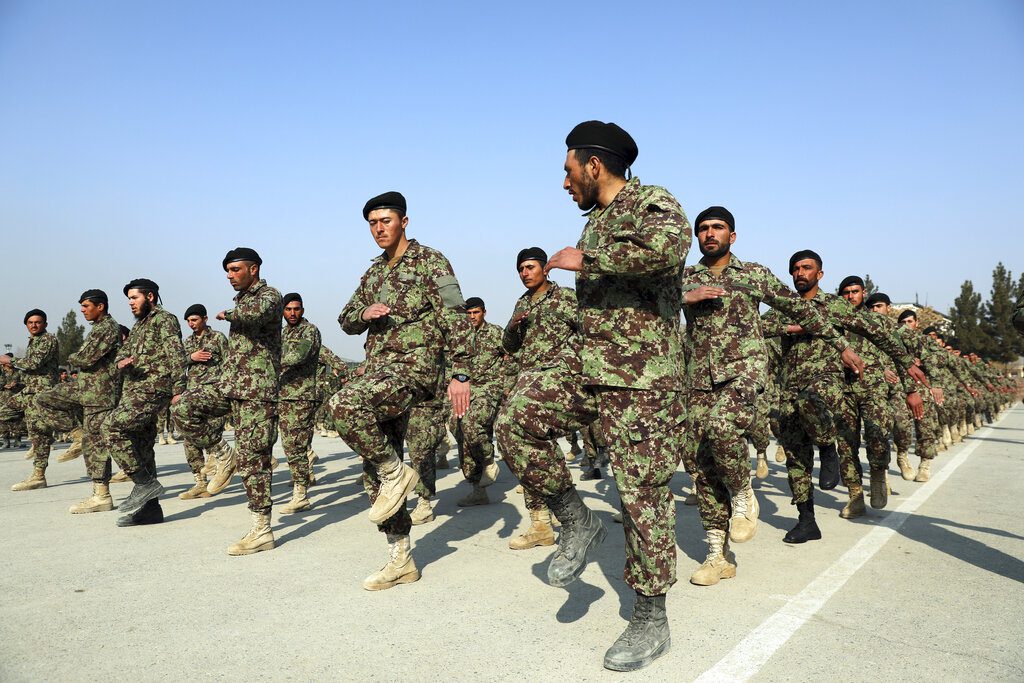(August 23, 2021) As Hamid Bahraam stepped outside his house located in Police district 8 (locally known as PD 8) in Kabul last evening, the first thing that caught his attention was a group of armed Taliban militia, patrolling the streets in armored vehicles. He then came across a few children playing outside their homes under the watchful eyes of their family members even as a handful of people including women hurriedly walked past shops and establishments on a largely deserted road. The tension in the air was palpable.
“There is nothing unusual about the behavior of the Taliban, at least for now, which makes things on the ground look normal. But this is just the beginning (of Taliban rule). All Afghans fear that the Taliban may go back to its old ways (of brutality and violence),” says the 26-year-old, who quickly walked back home after purchasing a few essentials, the prices of which have shot up since the country fell to the Taliban.

Hamid Bahraam
It was on July 29 that Hamid arrived in his country from Hyderabad, India when the Taliban was still far away from seizing Kabul. “It was just like any other normal day. Only that the regular Afghan army and police were patrolling Kabul in their vehicles instead of Taliban,” he says, drawing a comparison of how things took a turn for the worse in a matter of days.
Afghanistan plunged into chaos after the Taliban took control of the country’s capital on August 15. Like all Afghans, Hamid and his family remained indoors that day, staring at an uncertain future, memories of Taliban brutality coming back to haunt them. All that the Afghans saw from the doors and windows of their houses were several groups of Taliban members criss-crossing the city, all in a celebratory mood.
“People are very scared, especially women. There is panic everywhere and people mostly prefer to stay indoors. I stepped out after four days,” informs Hamid, speaking exclusively to Global Indian from Kabul. His father Naquibullah Bahraam is a principal in a government-run school there. It was in 2014 that Hamid first visited Hyderabad to pursue a Bachelor of Arts course in Osmania University. After completion of the course in 2017, he went back to his country only to return to Hyderabad two years later to pursue his MA, which he completed in July this year.

Hamid Bahraam
“Before I left Hyderabad, I knew of the tense situation prevailing in my country. But not once did I expect that Kabul would fall to the Taliban and the democratically elected government would be overthrown. In fact, all Afghans were under the impression that it was just another fight (between the Taliban and the Government) and a compromise would be reached soon. None in my country had imagined that Kabul would collapse so swiftly,” says Hamid, who worked in Kabul-based Gardez radio as a news presenter between 2017 and 2019. The family also run an institution called Bahraam Public Speaking Centre, where both father and son teach public speaking and English to Afghans of all age groups.
As a child, Hamid has faint memories of the ouster of the Taliban regime way back in 2001. “My parents and relatives have lived under the Taliban regime and they have seen the collapse of peace and security post 2001,” he says. The family has even been issued threats by the Taliban. “My father is a social activist, a doctor and also worked in a radio broadcast for some time. The Taliban always has problems with media and social activists. Due to his nature of work, the militia had once threatened my father with dire consequences,” recalls Hamid, adding that the Taliban has a history of killing and violence which no Afghan can ever forget.
Having completed his MA, Hamid was looking forward to working in media organizations and had even applied for a few jobs. But he is now a disappointed man. “Right now, I have no option but to wait for the situation to normalize. If my plan to join a media house does not materialize owing to the prevailing situation, I will go back to teaching public speaking and English at my academic centre. Hundreds of Afghans have benefited from the academic centre,” he informs.
Originally hailing from Paktika province in eastern Afghanistan, Hamid Bahraam takes pride in the fact that his father is a Tajik, a Persian-speaking ethnic group and his mother a Pashtun. “Pashtuns and Tajiks live together in Paktika which is a very unique composition. I speak both Persian and Pashto fluently,” he smiles. In Afghanistan, Tajiks dominate the Afghan army while Pashtuns dominate the Taliban. Tajiks are the second largest ethnic group in Afghanistan.
Ask him why, despite the deteriorating situation, he chose to return to his country from India, the youngster informs that his visa was to expire in September this year. “Once I completed my course, there was no legal reason to stay back in Hyderabad. Most importantly, I could not have left my family here by themselves.”




